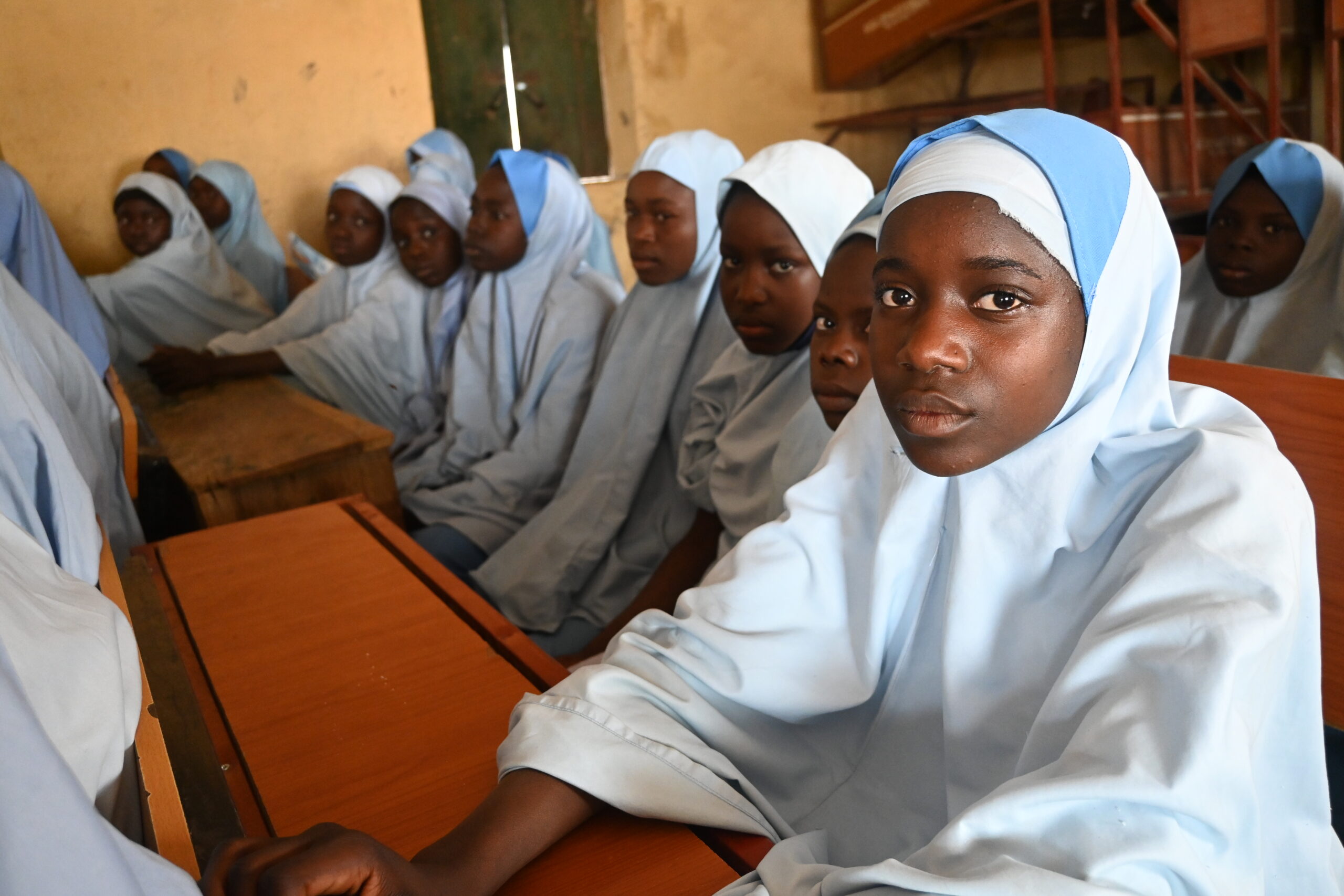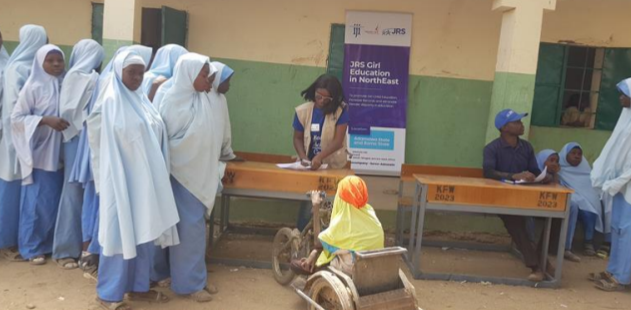
At IJI we believe everyone should be supported to reach their full potential and have the opportunity to grow. Education is the vital steppingstones to a brighter future but often in the places that we work poverty and marginalization means communities become vulnerable and often displaced persons, especially women and girls suffer the most as discrimination is common.
Partnered with the Jesuit Refugee Service (JRS) Nigeria, we have focused on addressing the huge inequalities and barriers young women face to access education and career development.
Nigeria still suffers from the Boko Haram insurgency which led to the horrific kidnapping of over 100 schoolgirls. Although formal education was their target, key infrastructure like communication masts, markets, bridges, schools, and other recreational facilities were also attacked alongside the killing of hundreds of teachers. As you can imagine, this has meant a generation of teachers has been lost and hundreds of learners have been set back due to the horrific violence of the past decade.
To mend the wounds of the past and to empower learners to grow, especially girls, the Girl 4 Girls (G4G) project was established to support vulnerable children who otherwise had no opportunity to attend school. Through careful selection based on vulnerability status, 500 out-of-school girls were identified and re-enrolled in school. Additionally, the 1,000 G4G participants received invaluable support from JRS, including educational assistance and hygiene kits. These targeted beneficiaries were chosen from low-income households, where affording school supplies and essentials was challenging.
In addition, the project involved 50 boys as champions for girls’ education and rights, who played a crucial role in raising awareness and organizing dialogues at schools with the support of head teachers.
The project didn’t just focus on formal education and looked at how to best support women and girls where they were at and their immediate needs. Many girls faced challenges in generating income and were at risk of early marriages, relying solely on their husbands for survival and well-being. However, through the project’s interventions, girls were encouraged to acquire skills for economic empowerment.

Shatu registering for education programme.
JRS assessed and selected 500 girls, providing them with training and start-up kits tailored to their skills, such as tailoring, knitting, and cap making. This support has empowered girls to utilize their skills within the G4G spaces, fostering independence and self-reliance.
Shatu, a 14-year-old girl living with a disability in Yamarkumi community, Biu. Before she was discovered during the Girls for Girls (G4G) selection process, Shatu had little hope of attending school.
Thanks to the support of school stakeholders and community leaders, Shatu underwent assessment using the Learning at the Right Level method and was placed in primary 4. Today, she is so grateful for the chance to receive an education and better her life.
“This project has given me hope and a future I never thought possible.”
Empowered with new skills and the support and encouragement to feed their minds and creativity, girls like Shatu, aren’t left behind and have the tools for their own self-development.
To help us continue empowering girls like Shatu, YOU can support projects like Girl 4 Girls & do something amazing!


